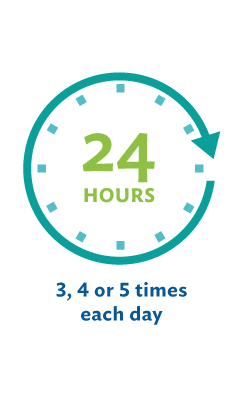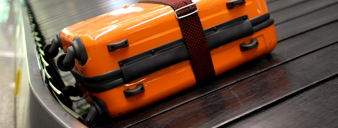Peritoneal Dialysis: 2 Types, Your Choice
There are 2 types of peritoneal dialysis (PD): continuous ambulatory peritoneal dialysis (CAPD) and automated peritoneal dialysis (APD). Both types of PD have slightly different advantages, so it really comes down to your personal preference and schedule along with your nephrologist’s recommendation.
Continuous ambulatory peritoneal dialysis (CAPD)
You do treatments continuously, without a machine, 3 to 5 times each day in any clean environment—at home, at work or while traveling. That’s why it’s called “ambulatory.” You’re not attached to a machine of any kind. You’re able to be on the move—wherever, whenever.
What’s involved with CAPD dialysis

- You place about 2 quarts of cleansing fluid into your abdomen and, later, drain it. This is done by connecting a plastic bag of the fluid, called dialysate, to the soft tube (PD catheter) in your abdomen.
- By raising the plastic bag to shoulder level, gravity pulls the fluid into your abdomen. This is called “filling.” When empty, the plastic bag is removed and thrown away.
- The cleansing fluid (dialysate) stays inside your abdomen for several hours. This is called “dwelling.” During this time, the waste products and extra fluid move out of your blood through the peritoneum membrane and into the dialysate.
- When it’s finished, the dialysate is drained from your abdomen through the PD catheter into a plastic bag, which can be secured and thrown away. This is called “draining.”
- The process of these 3 steps—filling, dwelling and draining—is called “an exchange.”
- The actual time for filling or draining takes about 30 minutes. It’s done during your regular daily activities. Because you do an exchange 3, 4 or 5 times in a 24-hour period, some people like to do their exchanges around mealtimes and at bedtime.

Request a home dialysis conversation
Home dialysis can mean fewer food restrictions, less medication, and more flexibility with treatment schedules.
Speak to an expert
Fly right with PD
When flying, it may be possible to bring some of your medications, syringes and supplies on board. Some other supplies may need to be shipped to your destination. For details, check ahead with your airline or call Patient Travel Services at 1-866-434-2597 (option 1).
Tip: All medications must be in their original packaging and clearly marked.
Automated peritoneal dialysis (APD)
What is APD? APD is an automated process that uses a machine called a “cycler” to perform your exchanges. With APD (sometimes known as CCPD or continuous cycling peritoneal dialysis), you can choose between a variety of different times and places for dialysis sessions. APD can be done as a longer single session while you sleep, as multiple shorter sessions during the day or night or as a combination of these options. Everyone’s treatment is different, so talk to your nephrologist about what works best for you.
Mastering both CAPD and APD dialysis
You will learn to do manual CAPD exchanges first, which will make your APD training easier. And, if for any reason your cycler is not working—or in case of a power failure—you will be able to manage your treatments by knowing how to do CAPD.

“We train you until you’re totally comfortable doing PD.”
—Shannon, RN
Watch shannon talk about training5 things I wish I knew about PD before I started
- PD becomes routine. Just like brushing your teeth or making coffee, doing PD will become part of your daily routine and start to feel normal.
- Traveling and keeping up with PD is easy. Whether you take your portable cycler or do manual treatments throughout the day, just work PD into your schedule like you do at home. Travel Services can even have supplies shipped to your destination.
- Using the portal is a great way to stay connected. You can send treatment data, see lab results and communicate with your nurse—all in real time. It's fast, easy and convenient.
- There are strategies for dressing with a catheter. Your nurses—and other people on PD—are great resources for learning how to look good while taking care of your catheter. Tape or PD catheter belts can help you stay comfortable and feel great.
- Storing supplies is easier with expert help. Tap your nurse for storage ideas—he or she knows great tips for fitting supplies in your living space.
What to know about peritoneal dialysis side effects
People doing PD may experience some side effects as a result of treatment.
- Feeling overly full—Because the belly is always full of fluid on PD, there may be some discomfort, especially when eating. Timing your treatments around meals may help.
- Weight gain—Some weight gain may come from fluid retention. The dialysate used in PD also contains sugar, which could lead to weight gain as it's absorbed by the body over time.
Talk it over
When considering your treatment options for dialysis, it’s important to be as informed as possible. Also, share the decision making with your doctor and immediate loved ones. Be honest about any concerns and bring up questions. Talking it through can help you make the best decision.

